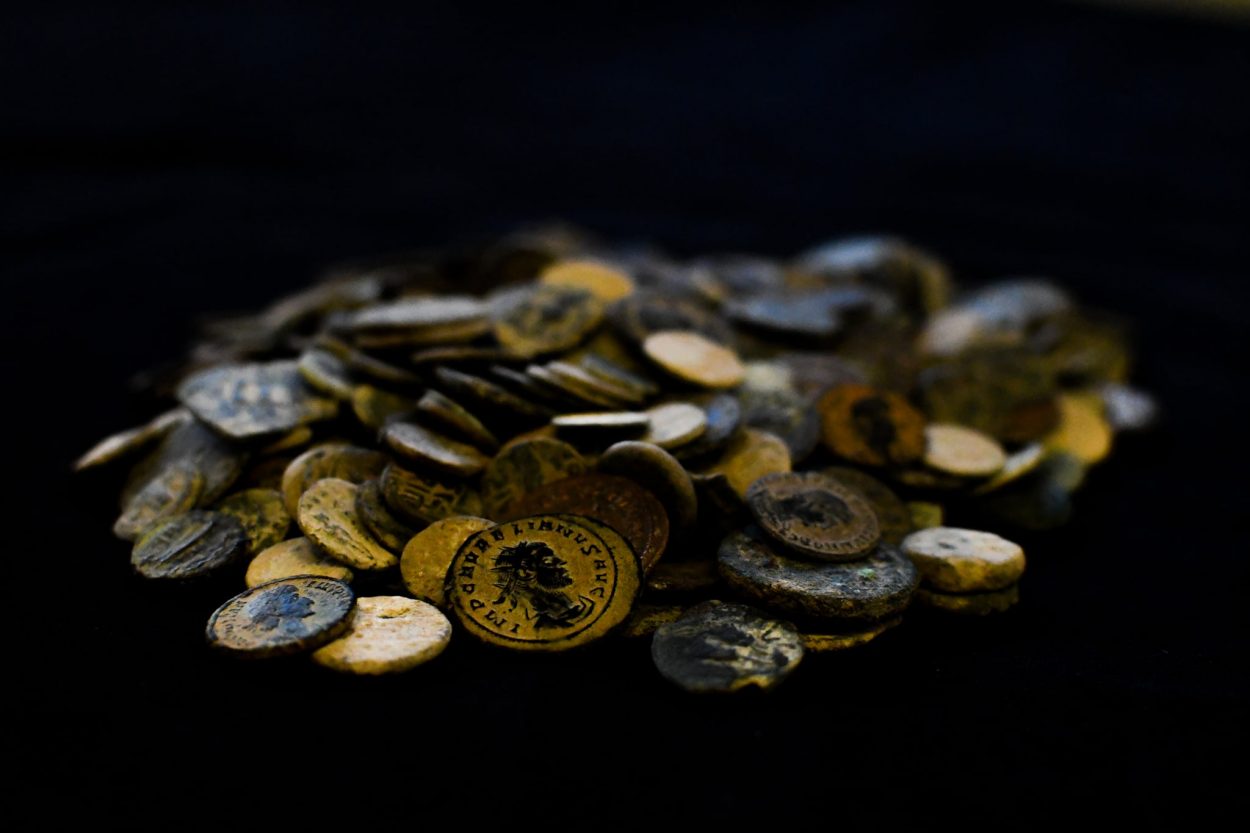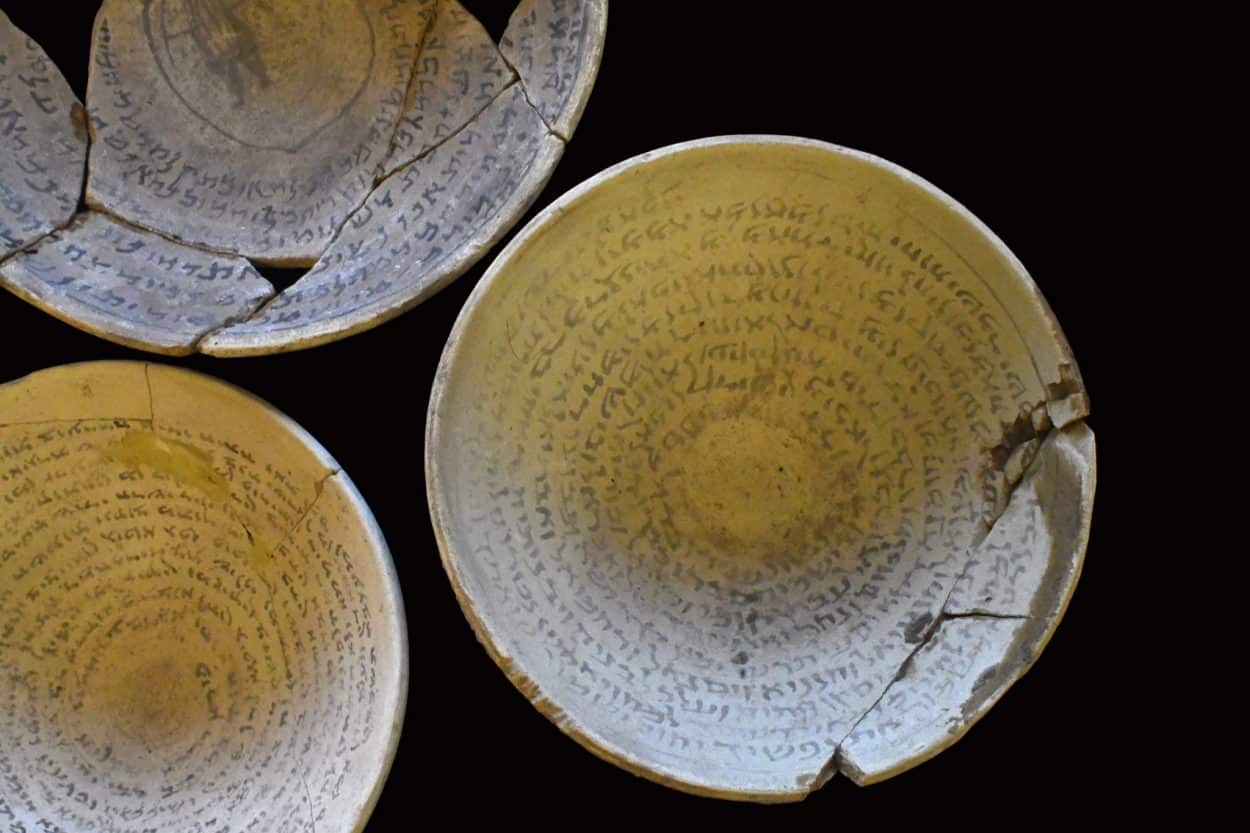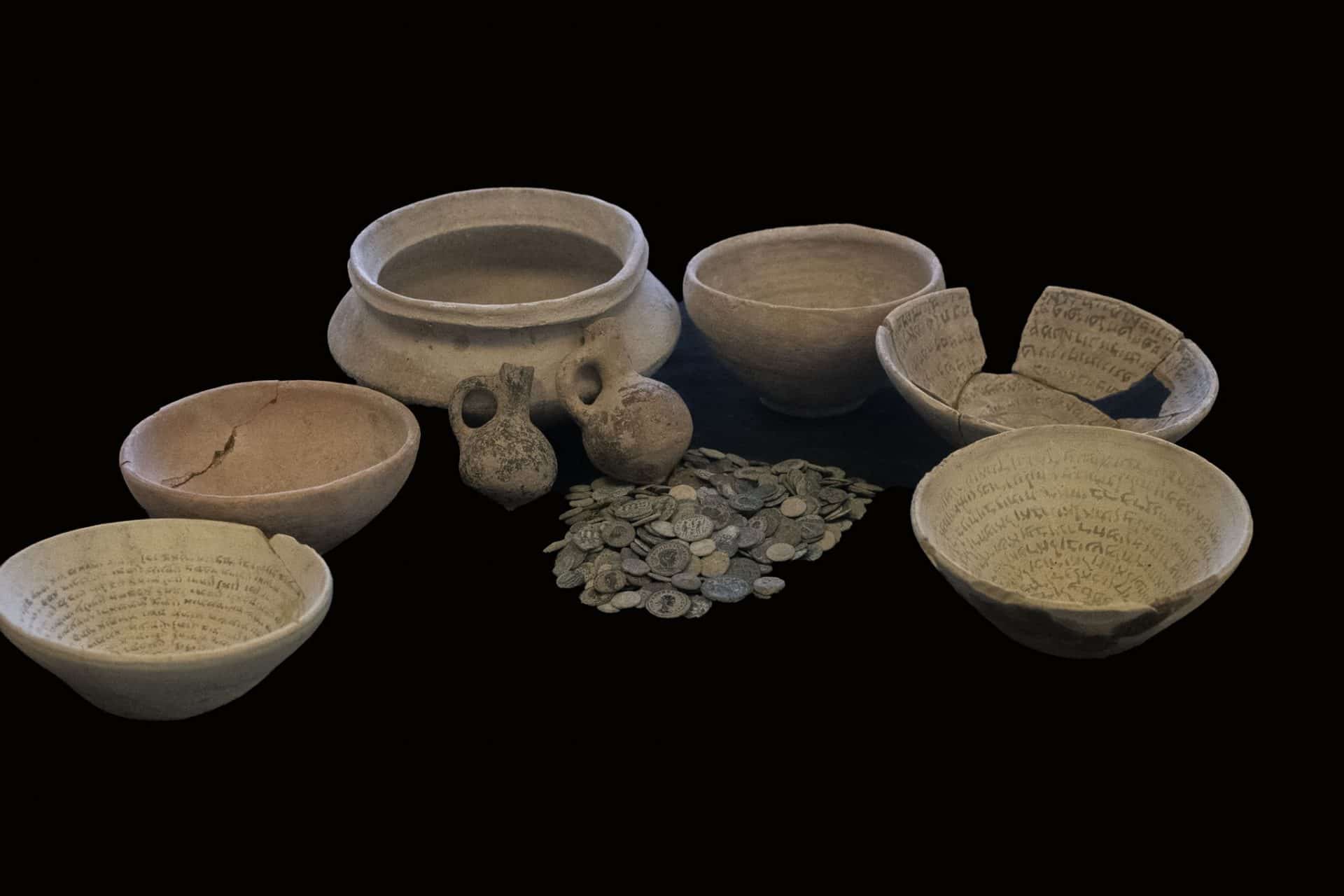Israeli Police, in conjunction with the Israeli Antiquities Authority (IAA) have conducted a raid in the centre of the Ramat Shlomo neighboured in Jerusalem, where they have recovered a trove of rare artefacts that includes ancient ‘Magic’ incantation bowls.
Police suspected that a smuggling ring in antiquities was operating from the neighbourhood and raided an apartment that contained hundreds of antique coins, glassware and weaponry, in addition to three ‘Magic’ bowls that originate from Iraq during the 5th-7th century AD.
Known as “swearing bowls”, the bowls are inscribed with spells and incantation scripts in the Hebrew and Babylonian-Aramaic languages which were used to fight curses, ward off demons and diseases, and were usually placed under the floor of a house for protection.
One of the bowls is written in the name of Joshua ben (son of) Perachiah, who appears in the Mishna, in Avot. The bowl has an incantation that follows the language of a get, or writ of divorce, however, instead of divorcing his wife the intent is to divorce and exorcise his home of destructive demons.

A second bowl mentions the angels Michael and Raphael, in addition to groups of named angels with a Hebrew quote from Psalms 121:7, “The Lord will guard you from all evil” (Adonai yishmorcha mikol ra).
The third bowl has a depiction of a female demon which was owned by Achai Bar Marganita (literally “My brother, the son of Pearl”), a common name for both jews and non-jews of the era.
Amir Ganor, director of the IAA’s Robbery Prevention Division said: “Bowls of this type came from ancient sites in the Mesopotamia – Iraq of today. The text was written by artists to a specific client, in accordance with his personal needs.”

The raid also discovered bone and ivory objects decorated in the Phoenician style with Egyptian motifs that included scenes from the animal world, alongside geometric ornaments. It is believed that the ivory objects were excavated illegally in one of the biblical mounds in the Samaria region.
Eli Eskosido, director of the Israel Antiquities Authority said: “Antiquities belong to all of us. They are our heritage. Unauthorised antiquities dealers encourage looters to go out and destroy ancient sites in search of finds for sale on the antiquities market. In the name of greed, they plunder antiquity sites, removing the finds from their historical context, thus obscuring parts of human history.”
Header Image Credit : IAA





